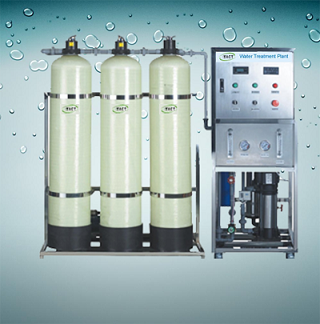From Guest Blogger Angie Freeman: Water Softeners Pose Dangers — to You and the Environment

It’s Not Safe For Your Plants or Soil
Do you have plants in your home? Do you use a water softener? If you answered yes to both of these questions, those plants are probably not in the best shape. The salt used to soften water builds up in the soil, which causes plants to die of thirst. If you live in a dry climate, that salt water will stay, and it’ll be diluted into the soil. High levels of salt decrease the oxygen, which prevents the plants from getting the nutrients they need to survive.
Once you’re done using that water, you flush it down the drain. That soft water gets sent to your city’s water source and could be used to irrigate parks. If an area is watered with soft water for a long time, the soil loses nutrients and will die. Similarly, it can end up in the ocean. It may not have an immediate effect, but over time, it can impact both the environment and aquatic life.
Instead, use a water softener alternative. It filters the salt out, so you can use it without worrying about your plants or the soil. It tastes great and is easier on your plants’ as well as your family’s well-being.
It Can Damage Your Liver
According to a study conducted in the UK, soft water can increase your likelihood of developing liver disease. Drinkers of soft water are more at risk for alcoholic liver disease because of the decreased levels of magnesium in soft water. Magnesium is a mineral that can help protect the liver from the effects of alcohol. In this study, six areas that primarily used soft water — Lancashire, Greater Manchester, County Durham, the South West, Merseyside, and Birmingham — had people diagnosed with alcoholic liver disease at a rate 21 percent above the national average.
It Creates an Imbalance
Due to the chemicals in softened water, you create an imbalance in your body when you drink it, which leaves you susceptible to disease. Some water softeners have switched to using potassium instead of sodium. However, too much potassium could put you at risk for hyperkalemia, which means you have a higher level of potassium in your bloodstream.
If you already have a condition like hypertension, the amount of sodium in water softeners could present a health risk, but this all depends on how hard the water is. The harder the water is, the more sodium that’s initially in the water. High sodium levels could produce risks for those with heart issues as well.
Not only does it create an imbalance in your body, but it creates one in the water, as well. It increases the rate that certain minerals appear in the water. The increase in heavy metals, such as lead and copper, could be poisonous.
It Wastes Water
While salt-based water softeners seem to offer benefits, they ultimately cause you to inadvertently waste water. This effect is due to runoff rates in the soil, and the salt that soft water adds to the ground. Since soft water has more sodium than hard water, it causes the soil in your yard to become dried out and compacted, which causes the water to runoff faster. In order to reverse this effect, you’ll need to flush it out of the soil with enough water to push it off your property. The downside with this is that it will likely be pushed onto your neighbor’s lot.
As you can see, traditional water softeners pose a significant risk to human health, as well as the environment. Many people choose to use water softeners for cleaning purposes, but don’t realize there are alternative options available that offer a similar solution, without adding any unnecessary effects. Look at all your options before diving in and buying a water softener. What are your thoughts? If you’ve tried a water softener alternative, please share your experiences with us in the comments below.


eSpring Carbon-Filter Technology Effectively reduces more than 140 potential health-effect contaminants,while keeping beneficial minerals and Ultraviolet Light Technology Destroys microorganism in drinking water without the use of chemicals like 99.9999% of bacterias ,99.99% of viruses and 99.95% of protozoan cysts like cryptosporidium and giardia http://www.amway.com/mapashop for more information